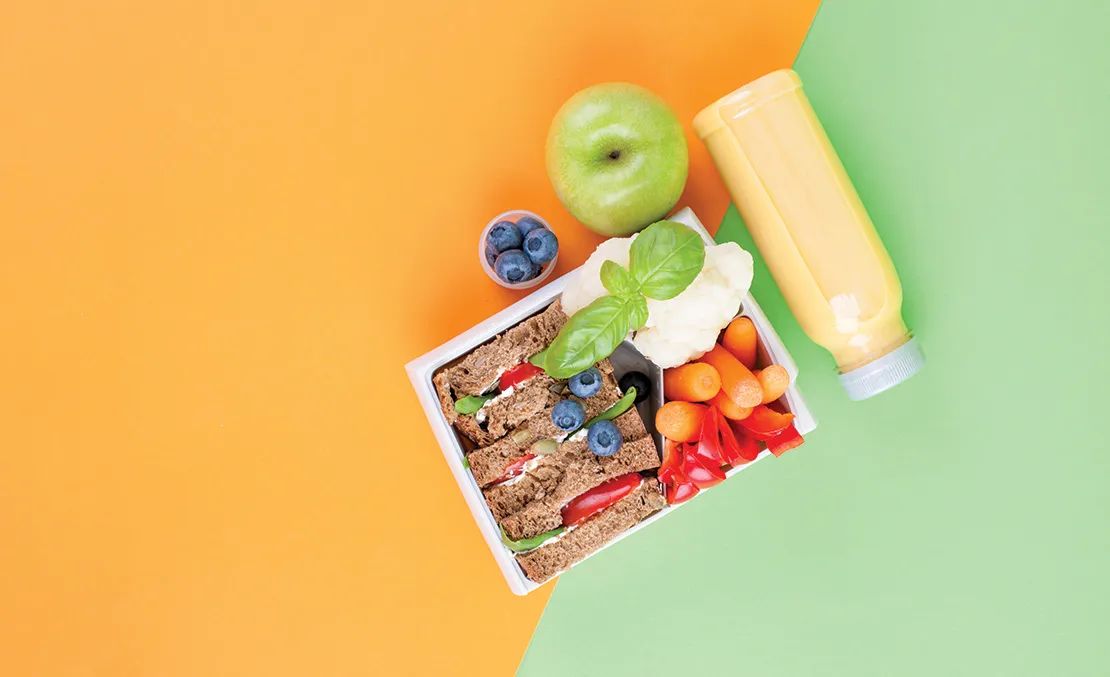
Healthy Starts: A Back-to-School Wellness Guide
September 2025
Article by Maria Weidich with Dr. Shannon Steppler Yonts
Back-to-school season is more than fresh outfits and new notebooks; it’s a golden opportunity for families to hit the reset button. As routines fall back into place, it’s the perfect time to focus on habits that support our kids’ health and immunity, both in and out of the classroom.
Dr. Shannon Steppler Yonts, a local Billings pediatrician who has served at the Children’s Clinic since 2012, offered some practical yet effective habits that, when reinforced at home, can help our children head into the new school year with strong immune systems and healthy habits that stick.
BOOK THOSE BACK-TO-SCHOOL WELLNESS CHECKS
Ensuring your child is up to date on immunizations is very important, Dr. Yonts said. “Especially those before entering Kindergarten and Middle
School.”
- Schedule annual physicals, dental visits, and vision checks before school kicks into high gear
- Wellness visits allow families to review growth and development, eating and sleeping habits, immunization records, and overall health with a primary care provider
- Keep a record of medical forms, allergies, and medications, and update with your child’s school if necessary
FUEL UP WITH IMMUNE‑BOOSTING FOODS
“It’s beneficial for children to eat a wide variety of foods,” Dr. Yonts said. “Foods that are high in vitamin C, vitamin D, and zinc can help boost immune function.”
- Aim for five servings of fruits and vegetables each day
- Focus on a variety of foods, including lean proteins and whole grains
- Hydration is key; encourage kids to stay hydrated by drinking plenty of water
REST TO BE YOUR BEST
Take it from an experienced pediatrician, “Children that get enough sleep have a healthier immune system, improved mental health, and better school performance,” Dr. Yonts said. “Everyone functions better with adequate rest!”
- Ages 3-5: 10-13 hours per night
- Ages 6-12: 9-12 hours per night
- Teens: 8-10 hours per night
- Sleep supports the production of infection- fighting cells and proteins and strengthens our immune system
- Reduces the risk of health problems and behavioral issues
- Enhances school performance and improves mental health
HYGIENE HABITS TO REINFORCE AT HOME
It’s no surprise that illness spreads through contact with germs, followed by touching the mouth, nose, or eyes. “Therefore, teaching children not to touch public surfaces and not to touch their face can help keep them from getting sick,” Dr. Yonts said. “Obviously, this is hard for children. They like to touch everything!”
- Teach proper handwashing using soap and water for at least 20 seconds
- Wash hands before eating, after using the bathroom, and after coughing/sneezing
- Promote and model cough/sneeze etiquette by using an elbow or a tissue
- Hand sanitizer is a good on-the-go option when soap and water aren’t available
- Disinfect high-touch areas at home, school, and work
- Keep kiddos home when sick, especially if they have a fever
- Distance yourself and your family from people who are ill
THE STRESS‑IMMUNITY CONNECTION
There is no question about it; stress affects the immune system. “Interestingly, acute or short-term stress can temporarily boost the immune system to help the body prepare for injury or infection,” Dr. Yonts explained. “This might be something like preparing for a test or giving a presentation. However, chronic stress leads to the immune system being suppressed, and teaching children to manage this stress is important.”
- Help children manage stress by building strong self-esteem and supportive relationships
- Create positive connection moments together as a family
- Teach and model healthy coping strategies like deep breathing and regular physical activity
- Normalize back-to-school nerves and talk about your own feelings, too
- Implement simple mindfulness activities like coloring, stretching or gratitude journaling
- Encourage problem-solving and age- appropriate independence to build both confidence and resilience
As the new school year kicks off, taking these small steps toward healthy habits can make a big difference in how your family feels, functions, and flourishes this year. “Continue to encourage a healthy diet, good water intake, regular exercise, and adequate sleep throughout the cold and flu season,” advises Dr. Yonts. While not about perfection, this checklist is designed to create a steady and supportive foundation for the busy months ahead.
Originally printed in the September 2025 issue of Simply Local Magazine
Check this article out in the digital issue of Simply Local here!





